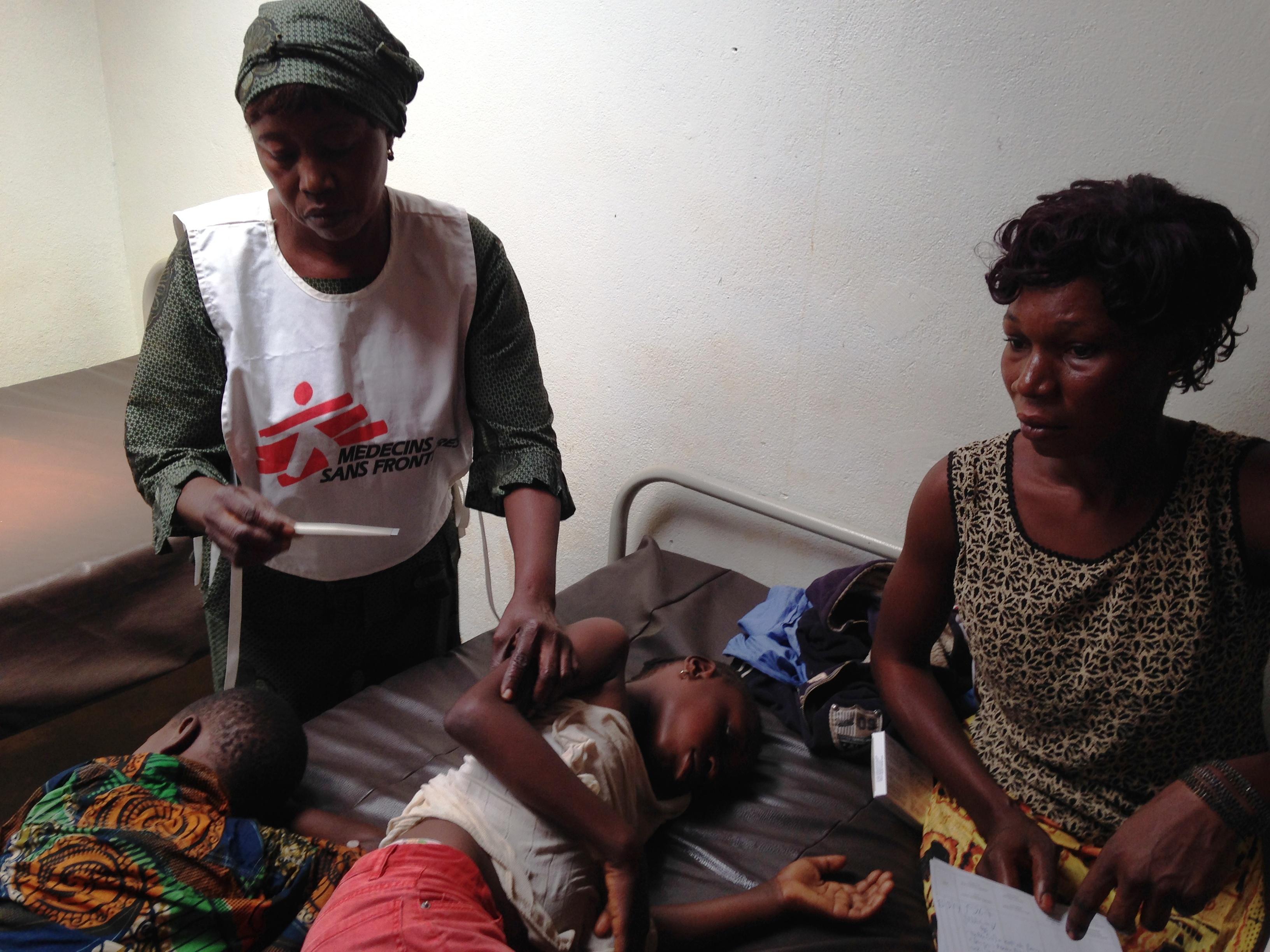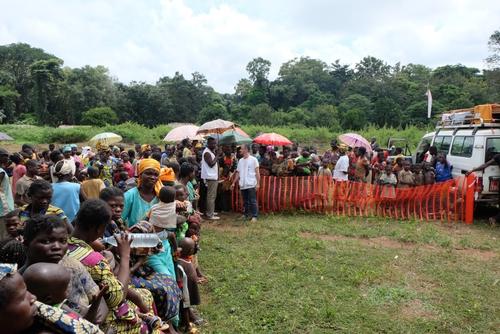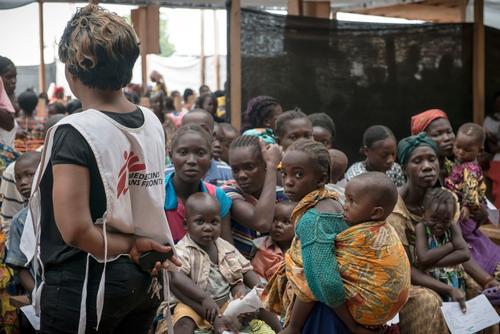A peak in malaria cases has highlighted the chronic health crisis in the Central African Republic. The crisis has been aggravated by the recent conflict and violence in the country.
Nine year old Ketura is lying on a plastic covered mattress. Her eyes are half open, she is breathing rapidly and her mother has soaked her clothes in cold water to bring down her temperature, which is close to 41°C. Ketura has been ill for a week now and all the signs of severe malaria are there. The MSF staff member checks Ketura’s temperature every 30 minutes, and she has been started on malaria treatment and been given other medicines to reduce the fever.
On the bed with Ketura is her little sister, Oceane, who also has malaria, but whose temperature is not as high. Four other children are lying nearby. This small room in MSF’s PK5 neighbourhood clinic is where those children who are too weak to return home immediately after they have seen an MSF nurse and received treatment remain under observation.
“Even when the children sleep under a mosquito net it is not possible to avoid malaria”, says Corine, Ketura and Ocean’s mother. “During these months, I almost always have at least one child who has malaria, and it is painful to see my children suffer like this”, she says.
It’s Saturday morning and many other worried parents have brought their children to the clinic. They look on silently as MSF staff perform a quick blood test on each child to determine if they do, indeed, have malaria. Those children confirmed as having the disease are then weighed to calculate the correct dose of medicine needed and a nurse also checks for other illnesses such as respiratory infections, which are common in young children in the Central African Republic.
“Normally, buying a treatment for malaria for one of my children would cost me 5000 CFA (close to €8). That is money I do not have – especially not when the children get sick over and over again. This is the fourth time I am here at the MSF clinic,” says Corine, who is also mother to three other children who have stayed at home this time.
Living in the capital, Bangui, these families can access free treatment such as this. Only last week, 800 children were seen and treated at this clinic. Outside Bangui medical care can be difficult to come by. MSF staff in hospitals and clinics around the country are sometimes the only ones who can offer quality healthcare that is free of charge. They are currently treating thousands of children each month, many of whom would otherwise be at a real risk of death.
It is the rainy season in the Central African Republic and with the rains come peaks in the number of patients with malaria. Malaria is the number one killer of young children in this country, which is experiencing a serious general – and especially health crisis - with no end in sight.
“For children under five, receiving treatment in time is especially important as they have not developed any antibodies”, explains Dr Papy Nimbata, who is the one who takes charge when a severely ill child reaches the MSF’s clinic in the PK5 neighbourhood.
When we meet him, he is examining an 11 year old boy called Julio who has a temperature of 40.8°C. Julio is not only suffering from severe malaria, but also has pneumonia and anaemia. He is extremely thin and weighs only 23kg. His mother explains that the family has little money and there are six children to feed. More often than not, they will only eat once a day.
Julio, Ketura and Oceane are all discharged once their temperatures have dropped, and are sent home with the medication they need. These children and their parents are the lucky ones.
MSF has worked in the Central African Republic since 1997 and there are currently 300 international and more than 2,000 Central African staff members working in the country. Since December 2013, MSF has increased its medical assistance in response to the ongoing crisis, the number of projects has risen from 10 to 21 and MSF is also running an additional six emergency projects for Central African refugees in the neighbouring countries of Chad, Cameroon and the Democratic Republic of Congo.






